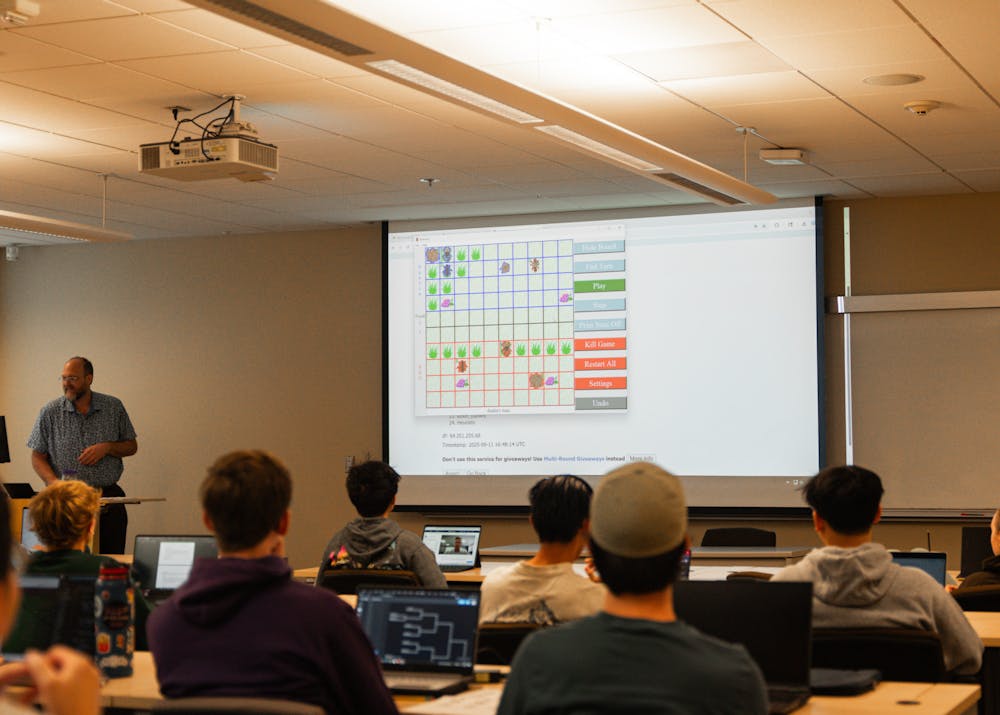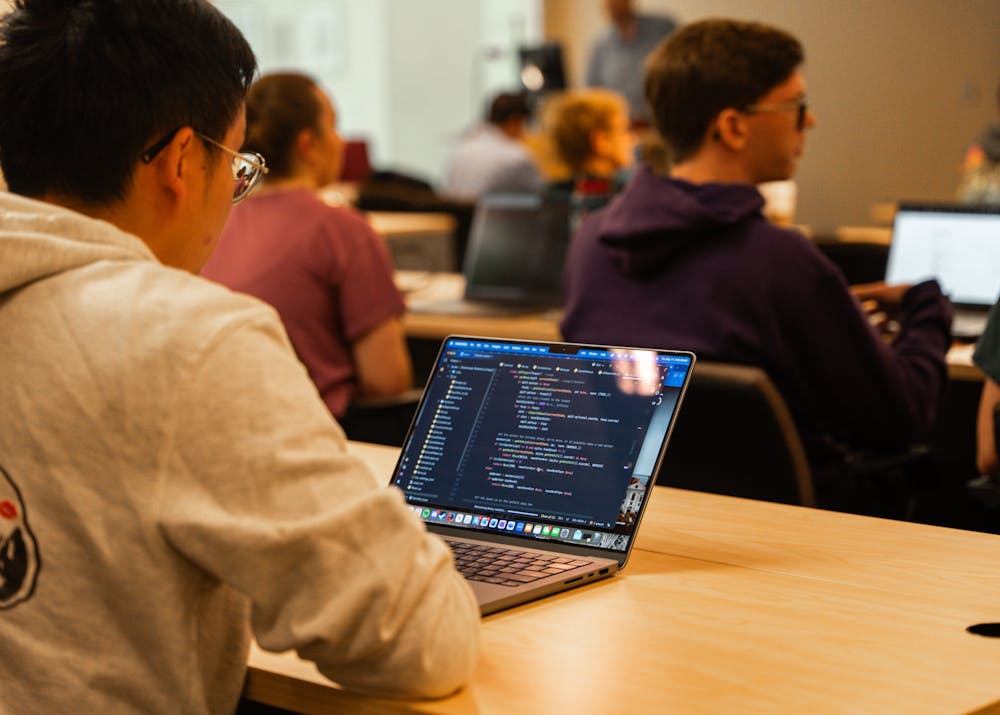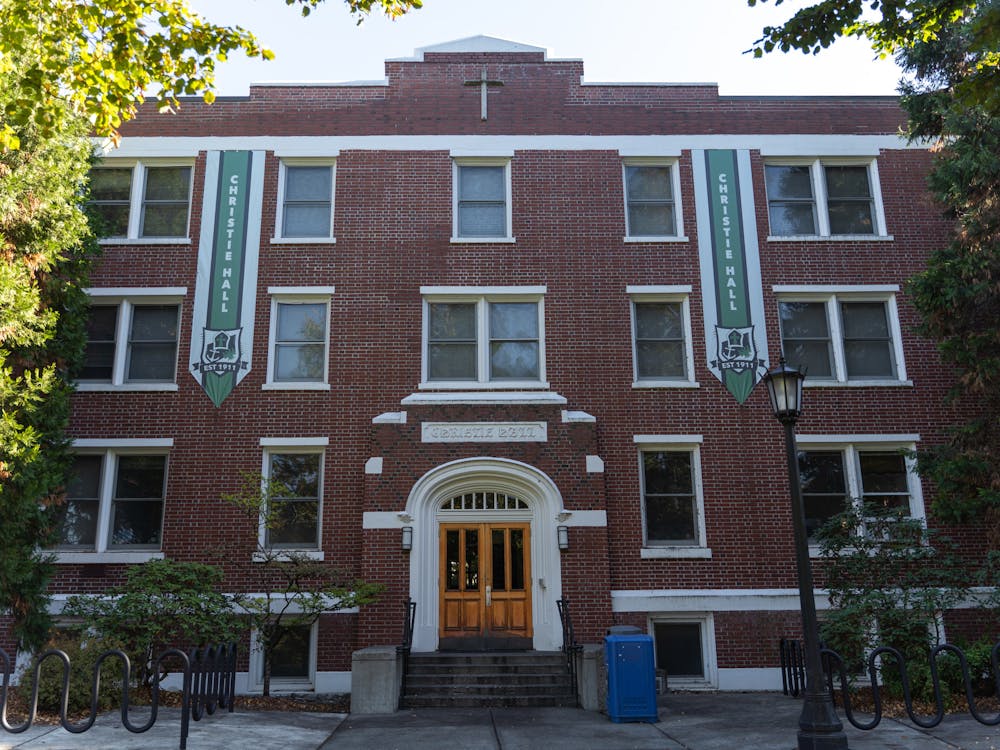Artificial intelligence (AI) is everywhere: videos of horse backflips, a suspicious “Here’s your 1500-word essay!” line on a student paper and deepfakes causing harm.
But what is the technology behind everyday AI?
The Shiley School of Engineering aims to answer this question with its new artificial intelligence minor.
The university has offered courses that delve into the foundations of AI systems since 2018, but this is the first semester where computer science faculty have put together a series of courses for the 12-credit minor.
Tammy VanDeGrift, interim dean for the Shiley School of Engineering and professor of computer science, says the minor goes deeper than AI trends.
“AI is much broader than ChatGPT,” VanDeGrift said.
In fact, AI is older than some might think, and it has developed over decades. Users began to acknowledge generative AI after OpenAI launched a free demo version of ChatGPT, and it surfaced everywhere.
VanDeGrift says techniques in the foundations of AI and machine learning, like model building and probability theory, are applied in new ways thanks to technological developments.
“It's just being used in ways where we're applying those techniques in slightly different ways, because we can now store data in ways that we could not store data before [and] we have access to data that we had never had access to before,” VanDeGrift said.
The minor is open to all students regardless of major and designed to complement most fields, according to Andrew Nuxoll, associate professor and department chair of computer science.
“Computer science is like chocolate, it goes really well with something [else],” Nuxoll said.
For those entering the field without previous experience, the course Introduction to Computer Science provides an opportunity to get a taste of what the minor looks like.
Upper-division courses, like the Computer Science Seminar, build on that foundational knowledge with material on programming, math and the ethical dilemmas AI professionals encounter.

Professor Andrew Nuxoll runs a tournament for students' work.
The curriculum emphasizes AI models based on decades of research. For example, in Nuxoll’s AI class, CS 421, students are working on a game called ReAntics, a two-player game where at least one player is AI.
“I actually have a custom environment I use in the class,” Nuxoll said. “It's a game that's simple enough that it's easy to write an AI to play it but complicated enough that it's difficult to write an AI that is effective.”
Despite the minor being new, students are already looking forward to declaring it.
Two junior computer science majors, Chengen Li and Joshua Krasnogorov, recently set appointments with their academic advisers to declare the minor.
Li expects the minor to boost his resume since employers are looking to use AI in companies and organizations.
“A lot of companies, they want to move towards AI, and I feel like keeping up with that demand is a necessary skill to have… there's not a whole lot of engineers that know a lot about AI or how to create that,” Li said.
Krasnogorov explains that AI programming is simpler than it looks, especially for those with a foundation in mathematics.
“This is oversimplification, but it's all matrix multiplication,” Krasnogorov said. “And when you get down to it, everything is linear algebra. But you don't really need to be super math-heavy to get it. It's just syntax.”
Li says that while math majors might have an advantage from their expertise in linear algebra or coding, other majors might also find AI useful for their fields.
“AI in the medical field, especially machine learning, can detect certain cells from an image that maybe some doctors might have missed,” Li said. “I think AI is very good for it, I think it benefits society.”
Krasnogorov also encourages his peers to give the AI minor a try.
“I know there's some smart people out there who can just pick up almost anything, and if it's one of those things where you can get into a subject and learn it very quickly, then why not?” Krasnogorov said. “To the dean [and to] whoever made it happen, I would like to say thank you, because it's a minor that is really convenient for computer science students.”
Regina Castillo is a News Reporter at The Beacon. She can be reached at medinaca27@up.edu.








